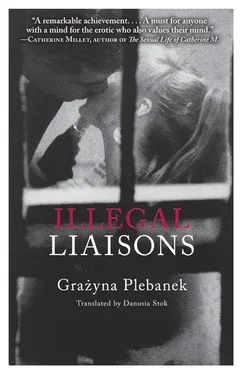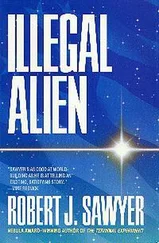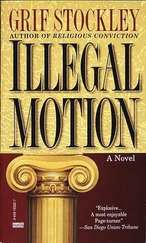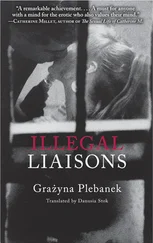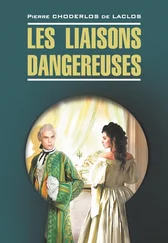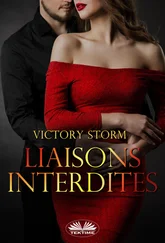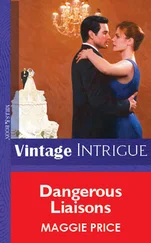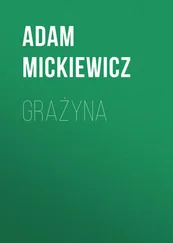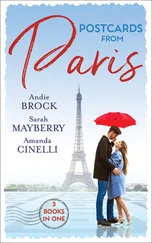Jonathan hunched in on himself. He shouldn’t be going to see her, giving his children the slip in order to meet a woman he didn’t know. He had such a wonderful family, a great wife – that ought to be enough. He raised the book to his eyes and they fell on the text:… compensate for this by multiplying my experiences .
“You’ve got three lives left,” Antosia haughtily informed her brother over the cards.
Tomaszek groaned and thumped his elbows on the table. Jonathan looked at his son with compassion. Antosia was a ruthless player, didn’t allow anyone any handicaps. He returned to his reading:… When I was happy, in a state of euphoria, as always at the beginning of love, I felt I had received the gift of survival …
“There, I didn’t die!” Tomaszek howled nearby.
… in the fullness of many elements .… Jonathan read to the end before closing the book, resigned.
He remembered the details of his first tête-à-tête with Andrea: the photograph of a bagel and cappuccino behind the window of the café, on a level with the image of froth, a fly buzzing, trapped behind the glass; an old man having difficulty opening his trunk, a beggar with a dog.
Jonathan was on his way to his rendezvous and the treadmill of the pavement was fleeing from beneath his feet. The reverse gear of common sense grated in his head but his legs gathered speed. Within, born from self-hatred, a new life was sprouting.
At last, the church. Despite the darkness, he caught sight of her at once.
She tasted of cool fruit.
WAKING ON THE CUSPof night and day usually swept away any useful thoughts and left shreds of panic – the heating was malfunctioning, his son might be cold on his school trip, his daughter might fall for some dickhead in the future. The flutter of such thoughts blackened the hours between four and six in the morning when Jonathan would fall into a delicious snooze, interrupted three-quarters of an hour later by the sound of the alarm clock.
That summer, his waking up reminded him of Christmas when he was still a child – the gnawing anticipation, dreams swirling in the imagination of uninhibited reality. He was so excited that even though he tried to close his eyes, he couldn’t. He got up and silently, so as not to wake the household, crept downstairs where his present awaited – a text from Andrea.
He’d grown dependent on seeing the little envelopes flashing on his cell, waited for them day and night; his mouth grew dry when he saw them and his hands shook. In the evenings, he waited for his wife to go to bed, then sat on the sofa and sent messages from the darkened room. In the mornings, he found it hard to wake up and swayed on his bed, his sleepy eyes roaming over the photograph on the wall, which he’d taken on his visit to Gotland with Petra. A house as crooked as the Tower of Pisa – he’d recorded it at the last moment. When they’d returned a year later, the house was no longer there.
At night, Andrea wrote: “You have the code to enter my dreams.…”
“Can I enter them as I stand?” he wrote back.
“And are you standing …?
“In my boxer shorts.”
“To attention?”
“Straight as a rod. For you.”
He curled up on the edge of his bed, in the morning. The glass over the Gotland photograph reflected a red tile from the apartment roof opposite. The loft window always opened at the same time, someone would lean out, start to bustle around, and soon the shape of another head would appear. Jonathan knew what was coming: as he climbed into his car with the children to take them to school, the neighbors, the couple opposite, would stride off to work in their suits.
It was practically all women at the first session of his creative writing class.
The older ones sat in a group by the door, the younger at the head of the long table by the window. The two men – one a balding thirtysomething, the other gray-haired – sat a fair distance from each other.
Cecile introduced Jonathan: the author of three books, a journalist with a degree in literature, a Pole who’d gone to school in England, studied in France and had been living in Brussels for the past few months. Jonathan nodded, his eyes on Cecile’s long neck, adorned with a red necklace.
“… will in a moment introduce his schedule for the course in creative writing,” she concluded.
Jonathan opened his laptop and rose to his feet.
“Good morning,” he began. “I’m very pleased to be able to put forward a program that, at this stage of my life, I believe to be the most interesting. I hope it will also inspire you.”
He looked around at the faces turned toward him. Attentive eyes and encouraging smiles; one of the young women kept nervously pushing back her hair as it fell over her forehead, the balding man mechanically drew circles on a sheet of paper.
“Before I introduce the subject of the course, I’d like to say a few words about myself.”
He leaned over his laptop and the photograph of a gap-toothed little boy appeared on the white screen behind him. The older women laughed, the younger ones exchanged glances. The men looked at Jonathan questioningly.
“Thank you for the excellent introduction.” He turned to Cecile. “After so many kind words all I can add is that … the lad behind me is also me.”
The women smiled, the older man adjusted his glasses. Jonathan pointed behind and said: “I had fewer teeth …”
They laughed; the thirtysomething put down his pen.
“… and fewer nasty experiences. Drugs, of course.” He waited for them to relax completely, then grew serious. “But I hold on to this photograph and, what’s more, look at it sometimes. Why? Because so much is happening around us. We rush to work in the morning, to collect the children in the afternoon, do the shopping on Saturday, organize family outings on Sunday. Or we feed the cats and stress about foreign language exams. From time to time we meet people we really like. Too rarely. Just as we all too rarely calmly breathe the air that reminds us of past holidays, too rarely do we simply sit and gaze aimlessly …”
He cast his eyes over the gathering; they were listening to his every word.
“I believe it’s important,” he continued, pointing at the smiling, gap-toothed boy behind him, “not to lose sight of oneself. And in writing, that, I believe, is what’s most important.”
“Two beers on Luxembourg Square?”
“I don’t know what time Megi …” began Jonathan.
“Three beers.” Stefan’s voice sounded decisive. “Come earlier and you’ll make it for happy hour, beer’s half price.”
Luxembourg Square, a cosy square surrounded by low-rise buildings, was crammed with office workers. Black specks in suits moved around between tables and trampled the scrap of lawn which had automatically become the smoking area. Jonathan locked his bike and made his way to O’Farrell’s.
Stefan, who, judging by his spaced-out eyes and gargantuan smile, must have drunk a fair amount, edged closer to his friend.
“You know Rafal, the last party was at his place.”
Jonathan nodded.
“Yes, he came to dinner. When you weren’t there.” Jonathan tried to make it sound like a reproach.
“His wife’s terrible.” The drunken “sss” drew the attention of the other customers.
“What’s that?” Przemek leaned over toward him.
Jonathan remembered how he had tried to make fun of Przemek, saying that, professional or not, he thought the man was slippery. He teased Megi because he knew Przemek was after her, but she was annoyed when Jonathan made fun of her new colleagues. With his perfect English and French, he had no idea – in her opinion – what it was like to be constantly accosted by colleagues “from the West” about where to find a “cheap Polish housecleaner.” “You don’t know what it feels like when they say Poles can be intelligent, too.” She was furious. “It’s covert racism!” Which was why she was all the more impressed when Poles consistently and obstinately climbed the Commission ladder.
Читать дальше
